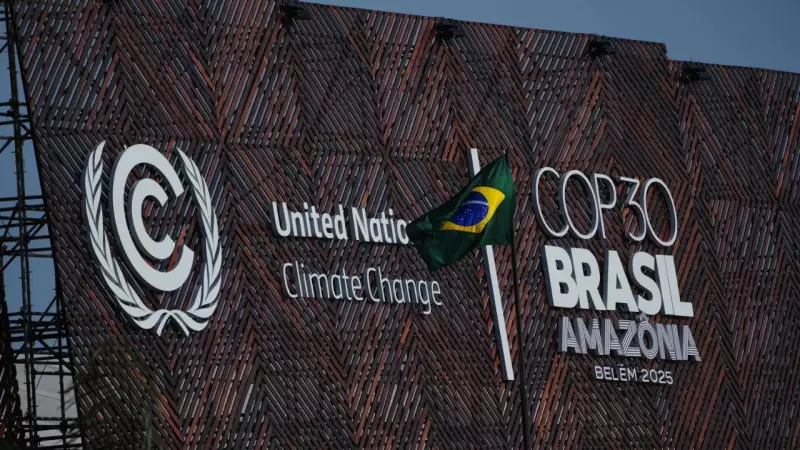
As world leaders gather in Belem, Brazil for the crucial World Climate Conference COP30, the devastating impact of environmental crimes is starkly visible across the Amazon rainforest. This unfolding crisis highlights a critical but often ignored reality in the global fight against climate change: tackling organized criminal networks is essential for protecting our planet's future.
Criminal Empire in the Rainforest
The notorious Comando Vermelho (CV), or Red Command, has established firm control over illegal activities including gold mining, timber extraction, and drug trafficking throughout the Amazon region. Rodrigo Ghiringhelli, professor at Pontifical Catholic University of Rio Grande do Sul and member of Brazilian Forum for Public Security (FBSP), confirms the gang's dominant position.
"The CV represents the most significant organization involved in illegal mining operations, alongside illegal deforestation and drug trafficking networks," Professor Ghiringhelli explained during recent interviews.
A comprehensive study released in October by Brazilian intelligence service Abin and the Forum for Public Security identifies drug trafficking, illegal gold mining, and human trafficking as the primary threats to both local populations and environmental stability. The research demonstrates how criminal cartels benefit from multiple enabling factors including rising gold prices, limited government presence in remote Amazon areas, and porous borders with neighboring countries.
Rapid Expansion and Local Control
The spread of criminal organizations from southeastern Brazil and their alliances with local groups is progressing at what the FBSP describes as an "astonishing rate." Criminal factions now operate in at least 260 Amazon municipalities, with the Comando Vermelho controlling approximately half of these territories.
Back in December 2024, the Forum for Public Safety had already warned about increasing cartel influence in their "Violence in the Amazon" study. "The scenario is deeply worrying," the report stated. "The violent struggle for territorial control has resulted in numerous murders and other crimes, alongside causing irreparable environmental damage."
The situation has evolved beyond conventional public safety concerns, becoming a significant obstacle to sustainable development throughout the Amazon region.
Direct Threat to Critical Infrastructure
The criminal grip extends to essential services and infrastructure. In Belem, the host city for COP30, the Comando Vermelho exercises substantial control. A recent investigation by Intercept_Brasil revealed that shortly before the climate summit began, the CV ordered the suspension of expansion work at a substation that supplies electricity to the city daily from 3 p.m. onward.
This incident prompted Minister of Mines and Energy Alexandre Silveira to call for enhanced security measures. According to media reports, the local energy company Belem Transmissora de Energia has faced repeated threats and intimidation since May 2025.
Local residents describe living under the constant rule of criminal "bosses." Business owners routinely pay protection money while community members must obey orders circulated via WhatsApp and maintain strict silence about criminal activities, as reported by Brazilian daily Folha de S. Paulo.
Historical Roots and National Response
The Comando Vermelho's origins trace back over forty years to the Brazilian military dictatorship period (1964-1989). The organization emerged when political prisoners and common criminals united in the infamous Candido Mendes prison on an island near Rio de Janeiro, initially aiming to prevent crime among inmates and improve prison conditions.
The gang's expansion northward connects indirectly to major sporting events. Security initiatives during the 2014 World Cup and 2016 Olympic Games, particularly the Peace Police (UPP) program in Rio favelas, successfully displaced criminal elements but inadvertently pushed them toward new territories.
"When gang leaders were compelled to leave Rio, they actively sought other operational bases," explained Abin coordinator Pedro de Souza Mesquita during a November 7 press briefing. "This relocation process began in 2013 and reached its peak in 2024."
Following the October 29 massacre in a Rio de Janeiro favela that claimed over 120 lives, political pressure has intensified significantly. On November 4, Brazil's Congress established a parliamentary commission of inquiry to uncover organized crime networks and their infiltration into political and social institutions.
According to legal expert Aiala Couto from the State University of Para, the Comando Vermelho now exhibits all characteristics of an international drug cartel: "They control major transport routes for the global cocaine trade while diversifying their illegal business operations extensively."
President Luiz Inacio Lula da Silva has deployed armed forces during the Belem climate conference under the "Operation to Guarantee Law and Order" (GLO), mirroring security measures implemented during other major events including the G20 summit in November 2024 and BRICS summit in July this year.





